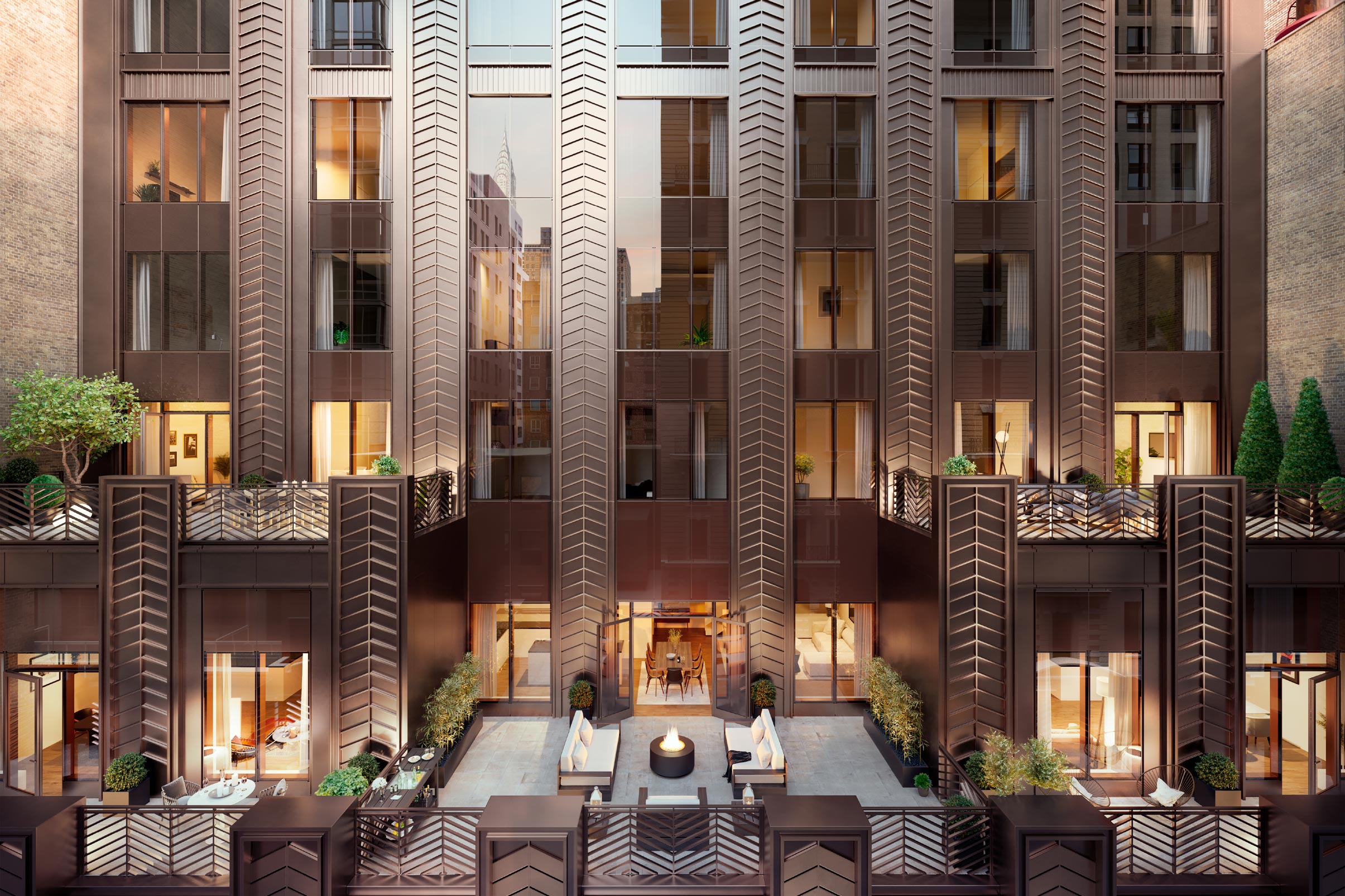In calling itself Rose Hill, after an old Manhattan neighborhood, a condo that’s rising on East 29th Street is breathing new life into a once-venerable name.
The same might be said of the developer of the 123-unit project, the Rockefeller Group, which is named for the family that built Rockefeller Center, but which has not been a regular presence in New York for many decades, preferring instead to develop buildings elsewhere.
Indeed, the Rockefeller Group’s last project in Manhattan was in 2001, when the firm codeveloped 745 Seventh Avenue, an office building. The firm, which is a subsidiary of the Mitsubishi Estate Company and no longer employs any Rockefellers, has never built apartments in Manhattan.
The developers are hopeful the family brand still has cachet. “The name ‘Rockefeller’ carries weight across the U.S. and all over the world,” said Meg Brod, a senior vice president of the Rockefeller Group. “I hope it’s not a difficult connection to make.”
Rose Hill, located at 30 East 29th Street between Madison Avenue and Park Avenue South, deliberately hopes to evoke the past. The bronze-coated facade of the 605-foot tower, designed by CetraRuddy, is patterned with chevrons, an Art Deco motif of the 1930s, when Rockefeller Center opened. The building’s name is a reference to a pre-Revolutionary War farm found in the area, but the name survives mostly only on plaques today.
But current tastes seem to have been taken into consideration with the apartments themselves. Ceiling heights in living rooms start at 11 feet, according to the developers, which puts them well above the condo-standard nine-foot minimum.
Betting that buyers won’t need permanent guest bedrooms but rather an occasional place to put out-of-towners when they’re visiting, the developers have configured units to offer “flex” spaces instead. Extensions of living rooms, and often without windows, these flex spaces, which are found in about half the units, can function as sitting areas most of the time but transform into sleeping areas for guests as needed.
Trading an official bedroom for this type of alcove allows Rose Hill to offer discounted prices, comparatively speaking, according to Shaun Osher, the chief executive officer of the brokerage CORE, which is handling marketing. A “flex” two-bedroom lists for about half the cost of a true two-bedroom, which average about $3 million in the neighborhood, Mr. Osher said.
The Rockefeller Group also seems to have taken a novel approach with amenities. In the spirit of rental buildings that provide co-working spaces, Rose Hill offers two sitting areas off the lobby that are imagined as places where work-from-home residents can peck at laptops.
Other amenities like a library and pool room will go on Rose Hill’s 37th floor, a lofty perch where another developer might have instead put revenue-generating apartments.
The Rockefeller Group’s roots stretch to 1928, when John D. Rockefeller, Jr., the son of the founder of Standard Oil, founded the firm as the Metropolitan Square Corporation. A few years later came Rockefeller Center, a landmark between West 48th and West 51st Streets in Midtown that today has offices, stores, television studios, plazas, and an iconic ice rink.
In the 1960s and 1970s, the firm expanded the center on the west side of the Avenue of the Americas, with several commercial high-rises. The firm still owns No. 1221, its home, and No. 1271, the former Time & Life Building, which will wrap up a $600 million renovation this summer.
Mitsubishi bought a controlling stake in Rockefeller Group in 1989 and took full ownership of the firm in 1997. The Japanese company also once owned Rockefeller Center but lost it in the 1990s after running into trouble with its loan.
The Rockefeller Group is also developing Flushing Commons, a 1.8 million-square-foot mixed-use project in Flushing, Queens, for which it has partnered with F & T Group and AECOM Capital.
The first phase offers 148 residential condos, while more than 450 are planned for the final phase, Ms. Brod said. In recent years, the firm has built apartments in New Jersey, Florida and Arizona as well.
At Rose Hill, which is being developed for $300 million and will open in fall 2020, unit prices start at $1.2 million and will average $2.9 million a piece, or about $2,400 per square foot.
The condo arrives at a challenging time. In Manhattan, 300 new condos sold in the first quarter of 2019, compared with 331 in the previous year, according to the brokerage the Corcoran Group. (The 2019 total was tied for the second-lowest in the last decade.) The median price for new condos was $2.55 million in the first quarter, down from $2.7 million last year.
“There’s not as much urgency in the market,” Mr. Osher said. “Buyers are taking their time.”


